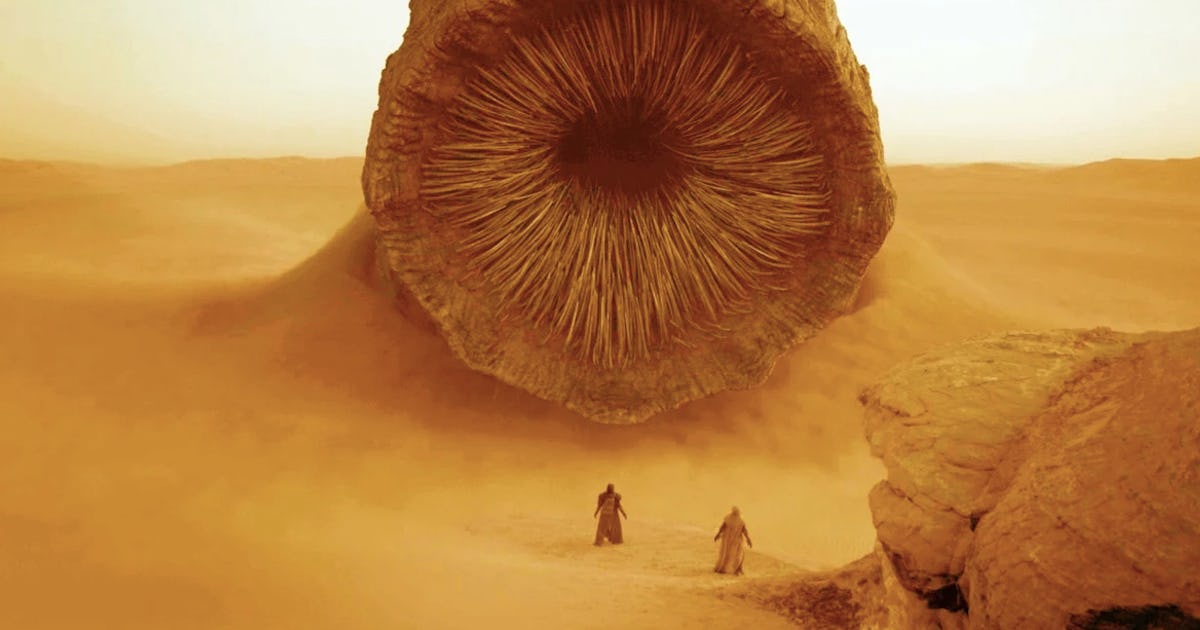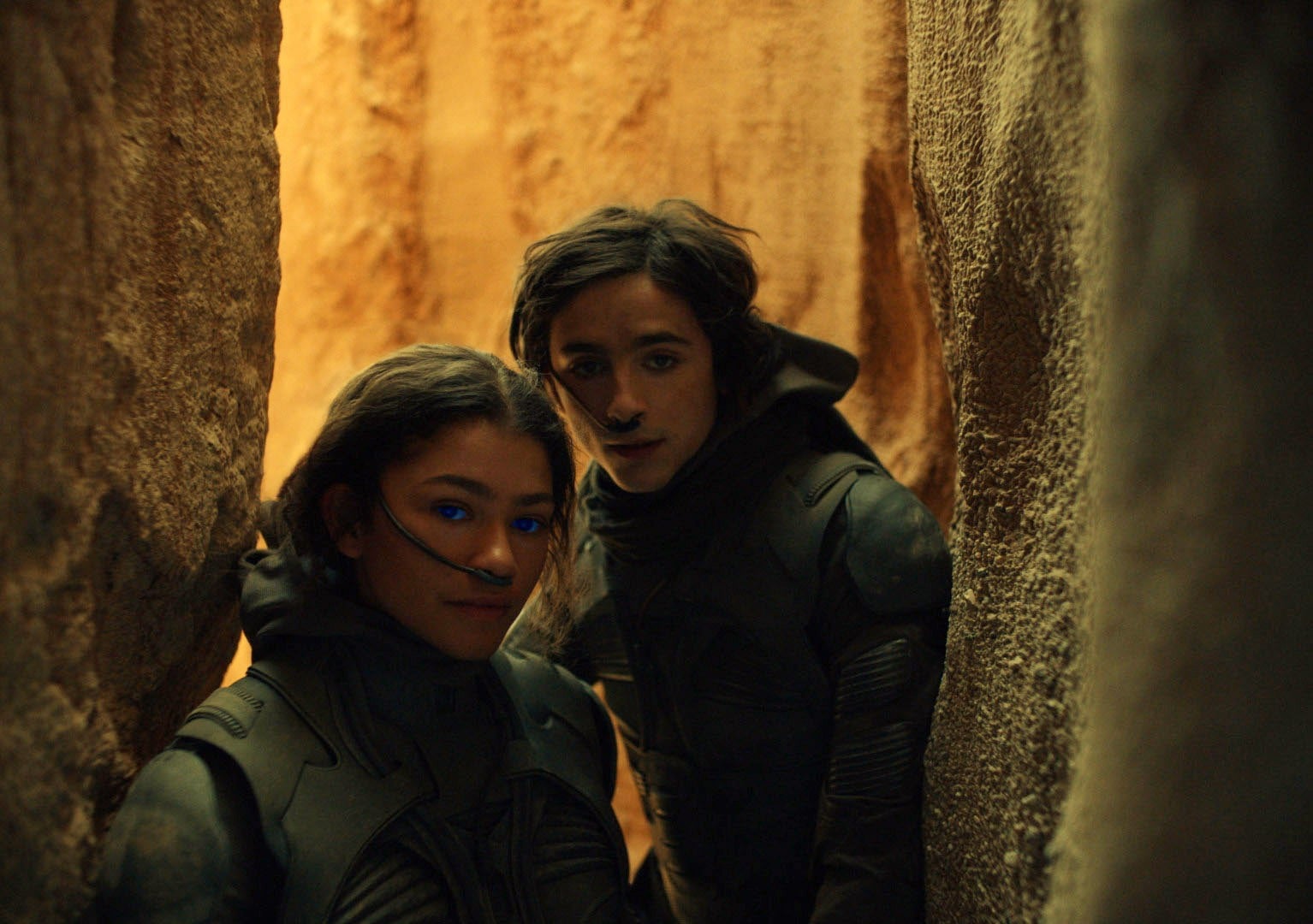Ever found yourself utterly captivated by a book that seems to divide opinion like few others? Dune, Frank Herbert's epic saga, is precisely that kind of literary phenomenon, drawing fervent devotees and perplexed critics in equal measure. It's a story that transcends generations, sparking debate and inspiring awe. But why does this particular science fiction universe resonate so deeply with so many, while leaving others feeling utterly cold?
The enduring appeal of Dune lies in its multifaceted nature. It's not simply a space opera filled with dazzling technology and interstellar battles, though it certainly has elements of both. At its core, Dune is a complex tapestry woven from threads of political intrigue, ecological awareness, religious fervor, and the exploration of human potential. It presents a society grappling with limited resources, the dangers of unchecked power, and the delicate balance between tradition and progress. The story explores how prescience and manipulation intertwine with destiny in an empire where noble houses vie for control of the desert planet Arrakis, the only source of the spice melange, the most valuable substance in the universe. The characters are richly drawn, flawed individuals caught in a web of circumstance, forced to make impossible choices with far-reaching consequences. All these elements create a rich and unique reading experience that stays with the reader long after they turn the final page.
| Category | Information |
|---|---|
| Author | Frank Herbert |
| Genre | Science Fiction, Epic Saga, Political Thriller |
| First Published | 1965 |
| Setting | The desert planet Arrakis and other planets within a vast interstellar empire |
| Notable Themes | Ecology, Religion, Politics, Power, Human Potential, Destiny |
| Main Characters | Paul Atreides, Lady Jessica, Duke Leto Atreides, Baron Vladimir Harkonnen, Chani |
| Impact | Hugely influential on science fiction and popular culture, inspiring numerous books, films, and games |
| Official Website | Dune Novels Official Website |
The fact that individuals from diverse backgrounds "women and men, Muslims and Christians" find common ground in their appreciation for Dune is a testament to its universal themes. However, the journey to Arrakis isn't always a smooth one. Some readers find the initial exposition dense and overwhelming, struggling to navigate the intricate world-building and the sheer volume of information. They might find that "the first third of the book reads like an encyclopedia article with a slow moving plot tacked onto the side," leading to a sense of "passive consumption" rather than active engagement.
- Dr Franknfurter Tim Currys Rocky Horror Legacy More
- 90s High School Hustle Misfits Homework Ring No One Will Miss Us
Then there's the issue of cultural appropriation, a topic that inevitably arises when discussing a narrative that draws inspiration from various cultures and religions. While Herbert's intention may have been to create a unique and thought-provoking universe, some critics argue that his borrowing from existing traditions can be problematic or insensitive. Navigating this complex terrain requires a thoughtful and nuanced approach, acknowledging the potential pitfalls while also recognizing the story's broader themes and artistic merit.
The comparison to J.R.R. Tolkien's "The Lord of the Rings" is another common point of contention. While both are epic fantasies with sprawling worlds and intricate lore, they differ significantly in their focus and execution. One perspective suggests that "Dune is like if LOTR didn't have elves, dwarves, orcs, istari etc, if sauron was just a bad guy and the one ring was just a kinda powerful magic ring that could make the big bad guy bigger and badder." This highlights the more grounded, political, and human-centric nature of Dune compared to the fantastical and allegorical elements of LOTR. While "The One Ring" serves as a symbol of absolute power and its corrupting influence, the spice melange in Dune is more of a catalyst, driving ambition and fueling political maneuvering.
Of course, personal preferences play a significant role in determining one's appreciation for Dune. As one reader admits, "Dune is my favorite novel of all time, so I was predisposed to like it regardless." This highlights the subjective nature of taste and the power of individual connection to a particular story. What resonates with one person may completely miss the mark with another. Some are drawn to the sheer scale and ambition of Herbert's vision, while others are turned off by the perceived dryness or complexity of the narrative.
- Happy Birthday Nancy Gifs Wishes Ecards Celebrate Now
- The Untold Story Charlie Browns Fathers Occupation More
The various adaptations of Dune, particularly the film versions, have also contributed to the ongoing debate. David Lynch's 1984 adaptation is notoriously divisive, with many criticizing its convoluted plot and over-the-top visuals. The recent Denis Villeneuve adaptation, on the other hand, has been widely praised for its faithful adaptation of the source material and its stunning visual effects. For some, the Villeneuve version "redeems Lynch's version in a way, by succeeding where it failed." This underscores the challenge of translating a complex and multi-layered novel into a visual medium, and the inevitable compromises that must be made in the process.
However, beyond the surface-level critiques and comparisons, there are deeper reasons why Dune continues to captivate and inspire. It's a story that grapples with fundamental questions about human nature, the nature of power, and the future of our planet. It challenges us to consider the consequences of our actions and the importance of ecological stewardship. It explores the dangers of unchecked ambition and the seductive allure of charismatic leaders. And it reminds us that even in the face of overwhelming odds, hope and resilience can prevail.
Of course, not everyone is going to be on board with Herbert's vision. Some may find the later books in the series less compelling, feeling that they stray too far from the original themes or introduce elements that contradict earlier established lore. "Sigh as much as I wanted to see what dune 7 looked like, i felt like the books took the themes and build up that frank herbert's series felt about and threw it all out the window making leto's sacrifice meaningless, nullified most the scattering/golden path point, went back on all the times the series spoke about not concentrating power." This highlights the risk of diminishing returns in long-running series, where the original spark can fade over time. It's a sentiment that many readers can relate to, regardless of their feelings towards Dune.
Ultimately, whether or not you "like Dune" is a matter of personal taste. But regardless of your opinion, it's undeniable that Herbert's creation has left an indelible mark on science fiction and popular culture. It's a story that continues to be debated, analyzed, and reinterpreted, proving its enduring relevance in a rapidly changing world. It's a testament to the power of storytelling and the ability of a single novel to spark countless conversations and inspire generations of readers.
For those who find themselves questioning certain plot points or character decisions, it's important to remember that Dune is a product of its time, reflecting the concerns and anxieties of the Cold War era. Herbert's exploration of ecological themes, for example, was particularly prescient, given the growing awareness of environmental issues in the 1960s. Similarly, his depiction of political maneuvering and the dangers of unchecked power resonates strongly in a world grappling with global conflicts and the rise of authoritarianism.
One common criticism leveled against Dune is its dense and often convoluted plot. The sheer number of characters, factions, and historical events can be overwhelming, particularly for first-time readers. The book is "way more of a political maneuvering book with lots of dialogue" which means that some readers find themselves lost in a maze of intrigue and power struggles. Others argue that this complexity is precisely what makes Dune so rewarding, offering a depth and nuance that is rarely found in other science fiction novels.
It is crucial to remember the impact of adapting to a new style, the person might be disappointed by a book that is more political than the others: "So people coming off of dune and going into that book are kind of let down by it." This shows how important is to understand that different styles can have an effect on the reader expectations.
Even those who ultimately appreciate Dune may have reservations about certain aspects of the story. "I'll preface that I really did enjoy dune, because what i'm going to say about the book will come off as negative," says a reader, before adding their critic. This suggests that it's possible to both admire and critique a work of art, recognizing its strengths while also acknowledging its flaws. In fact, engaging in critical analysis can often deepen our appreciation for a particular work, allowing us to see it in new and more nuanced ways.
So, the next time you encounter someone who either passionately loves or vehemently dislikes Dune, remember that their opinion is shaped by a complex interplay of personal preferences, cultural background, and individual experiences. There is no right or wrong answer when it comes to appreciating a work of art. What truly matters is that we engage with it thoughtfully and critically, allowing it to challenge our assumptions and expand our understanding of the world.
One reader reflects, "I haven't found many people online sharing this sentiment, so i am hoping for some input on the following criticism here." This is the hallmark of a truly engaging piece of art: sparking dialogue and inviting diverse interpretations. It encourages us to question, to analyze, and to ultimately form our own informed opinions. And that, perhaps, is the most enduring legacy of Dune.
Finally, there is the critique concerning the evolution of the universe across the Dune sequels. One reader felt "like dune 2 didn't expand on the universe or world in a meaningful way," leading to a sense of stagnation or missed opportunity. This highlights the delicate balance that authors must strike when continuing a beloved series, striving to both stay true to the original vision while also introducing fresh ideas and expanding the narrative scope. The point is that the novel invites exploration of a vast range of subjects, and invites readers to form their own opinion.
- Andreas Courtney Susan Luccis Sons Wedding Life Today
- Thousand Oaks Hiking Discover Trails Plan Your Adventure


